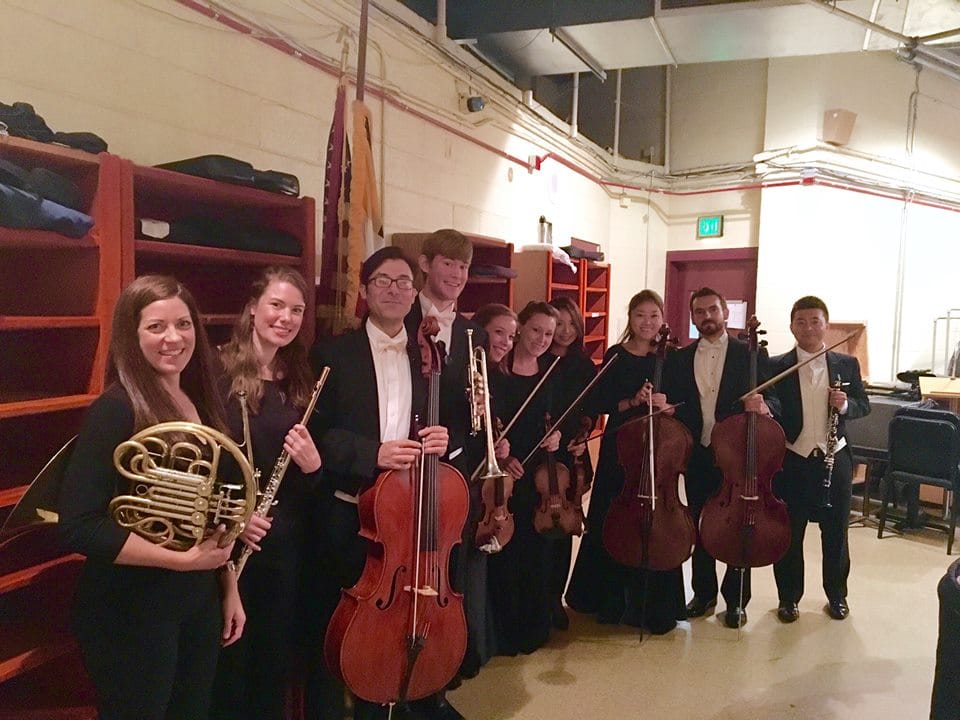Just in from the musicians:
The BSO Musicians received an offer from the Baltimore Symphony management on Tuesday, October 30th. Tuesday was only the second negotiation meeting scheduled with management this season, and the only session since the previous collective bargaining agreement expired on September 9, 2018.
The BSO management offered a proposal that entailed a radically reduced season, cutting the weeks of employment from 52 to 40, amounting to a 23% cut in work weeks. The BSO has proposed eliminating its summer season, just one year after telling the Musicians at the bargaining table how important it is that the BSO remains one of this country’s 52-week orchestras.
The offer would result in a minimum of a 17% cut in salary. Other increased costs to Musicians in benefits and workload changes would bring the total cuts to 25% in real world value.
The Management of the BSO is openly calling for conversion of the Orchestra from a full-time, world-class symphony orchestra into a part-time regional orchestra, reflecting the BSO’s view of the reduced ability of a “troubled” Baltimore to continue to sustain a top-level institution.
Impact
The Baltimore Symphony has been a cornerstone of the arts community for over one hundred years. Generations of Baltimore families have been entertained and educated about music at our performances. It is a hallmark of truly great cities to have institutions that enrich the cultural landscape and keep the arts alive and flourishing for generations to come. A vital Orchestra is just as essential to a thriving metropolitan area as museums, aquariums, theaters and stadiums. Maryland has shown that it wants a great orchestra. The State of Maryland has been incredibly generous in supporting the BSO historically. Just this summer the State of Maryland was one of the largest supporters of our recent tour to the United Kingdom and Ireland.
The effect of these cuts to the BSO would result not only in the diminution of the orchestra itself, but on the quality of life of the entire region. The music community will be degraded as world-class musicians choose to make their homes elsewhere. The city as a whole will suffer a terrible loss artistically and culturally, which will in turn hurt its viability for the business community, as well as its major hospitals and centers of higher learning.
The Musicians are united in their love for the city of Baltimore and the state of Maryland. They are also united in their dedication to the incredible Orchestra that has been built by the sacrifices and dedication of Baltimore’s citizens for the past 102 years. The Musicians want to continue to support the region in every way we can. However, there is no doubt that many musicians would leave the BSO if this current plan were implemented. So we are determined to garner support from the community to stand against this ill-conceived plan.
Financials
The BSO management cites “annual deficits” as the reason for their radical demands that BSO musicians’ salaries and benefits be cut by 25%.
The management of the BSO claims that the organization has incurred $16 million of deficits in the past decade. A close look at the numbers shows that these “deficits” are not a result of musician’s salaries – which have essentially remained flat over the past ten years, and when adjusted for inflation, have decreased. In contrast, spending in other areas has increased consistently, including pay for administrative expenses, production costs, conductors and guest artists. As a matter of fact, the expense line for non-musician expenses increased by 46% between 2010 and 2016. We challenge the BSO management to justify paying the Musicians – the Artists who perform the basic mission of the BSO, playing great music for our community – less and less, while spending more and more on everything else. Something is drastically wrong.
$2.8 million of the supposed deficit occurred in 2009 when the BSO decided not to take its customary draw. Another $3 million increase in expenses was incurred during the Centenary Season. Many other projects throughout the last ten years over and above our mission to play great orchestral music have contributed to the financial shortfall.
The so-called “deficits” are a bookkeeping device to cover up for BSO management’s inexplicable failure to use available endowment funds, as necessary, to augment ticket sales and annual contributions, as every other one of their peer institutions does. This is particularly egregious in the face of investment earnings in the endowment funds in recent years, which have far exceeded the BSO’s own projections.
The BSO may claim its endowment funds are “independent” and beyond their control. The BSO’s own certified public accountants treat the BSO and its endowment funds as a single consolidated entity for financial purposes.
We challenge the BSO to publicly disclose the true, consolidated financial status of its endowment funds, their earnings, and the availability of those funds to maintain the BSO as a world-class orchestra by filling open positions in the Orchestra. Today, at any given performance, up to 30% of the Orchestra is made up of part-time musicians who are paid less and receive no benefits, because there are only 77, soon to be only 75, full-time members. The expired contract provided for 98 musicians, and had allowed in recent years to be reduced to 83.
Summary
No other major US orchestra has as few as 75, or 77, or 83 full-time members. Not one.
The timing of this deeply damaging decision by CEO Peter Kjome and the management of the Baltimore Symphony is even more disturbing. It occurs in the midst of a $65 million capital campaign and on the heels of a wildly successful international tour.
Why would the BSO plan and execute a world-class tour in August, only to return to Baltimore in September and announce that we can no longer be world-class? Why make the effort in the first place to showcase an orchestra that is to be diminished upon its return?
The BSO’s leaders seem to lack any vision for the institution beyond their immediate cash flow concerns. This displays a profound level of carelessness as stewards of the artistic treasure that is the Baltimore Symphony Orchestra.
We call upon our devoted patrons and supporters – the citizens of Baltimore and its environs, Montgomery County, and Maryland – to join the BSO Musicians in fighting to keep the BSO a world-class orchestra.











